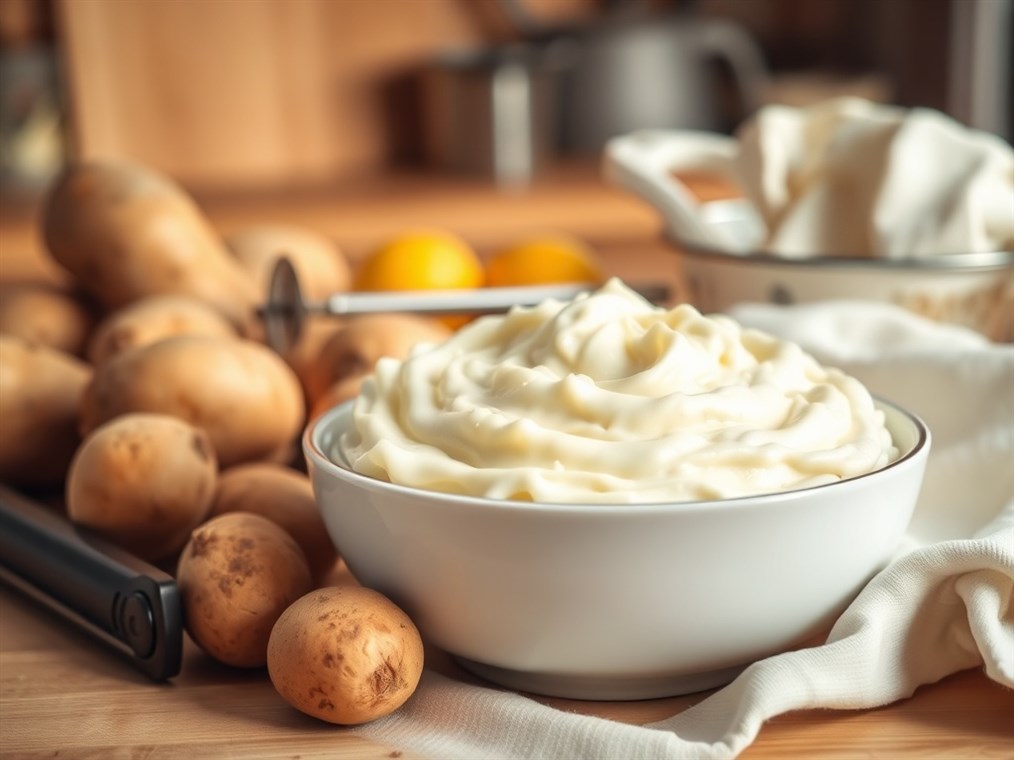Mashed Potato Perfection: Should You Give Your Spuds a Soak?
Mashed potatoes. Is there anything more comforting? Seriously, that creamy, dreamy cloud on your plate has been a dinner table staple for, well, forever. But nailing that perfect texture? That’s where things can get tricky. You’ve probably heard whispers about soaking your potatoes before mashing. Does it really make a difference? Let’s get down to the nitty-gritty and find out if this step is a game-changer or just another kitchen myth.
The secret, like with most things in cooking, lies in the science. Potatoes are naturally starchy little guys. And that starch, especially a type called amylose, can be the villain behind gluey, sticky mashed potatoes. Nobody wants that, right? Soaking ’em helps draw out that excess starch.
Think of it this way: When you chop those potatoes, you’re basically unleashing tiny starch granules. Soaking them is like giving those granules a pool to swim in. They leach out into the water, turning it cloudy – that’s the starch doing its thing! The big win here? Less starch means less glue, and more evenly cooked potatoes.
Okay, so how do you actually do it? Peel and chop your potatoes into roughly the same size pieces – consistency is key here. Toss them in a bowl, and drown them in cold water. Some folks even add ice! Let them chill out for at least half an hour, or even a few hours if you’ve got the time. Pro tip: rinse them and change the water a couple of times during the soak. You’ll see just how much starch comes out!
But hold on a minute. Soaking isn’t some magical solution. It’s just one piece of the puzzle. You can soak all day long, but if you mess up other steps, you’re still gonna end up with less-than-stellar mash.
First up: the potato itself! Different potatoes, different results.
- Russets: These are your go-to for fluffy. They’re high in starch and low in moisture, which means they break down beautifully.
- Yukon Golds: These guys are waxy and naturally creamy. They take a bit more muscle to mash, but the result is a richer, denser, more decadent experience.
- Ratte/La Ratte: Okay, these are a bit fancy, but some chefs swear they’re the absolute best. Smooth texture, rich flavor… if you can find ’em, give ’em a try!
Then there’s your mashing technique. This is where things can go south fast. Over-mashing releases way too much starch. Trust me, I’ve been there. The result? A gummy, sad mess. A potato ricer or food mill is your best friend here. They create a smooth mash without overworking the potatoes. Don’t have one? A regular potato masher works just fine. Just… be gentle. And for the love of all that is holy, stay away from the blender or food processor! They’re way too aggressive and will turn your potatoes into wallpaper paste.
And finally, the fats and liquids. Butter and cream are your allies. They add richness and that luxurious texture we all crave. Heating the milk or cream before you add it? Even better! It keeps the potatoes nice and warm and prevents them from cooling down too quickly.
Now, here’s a curveball: acrylamide. It’s a chemical compound that can form in starchy foods when you cook them at high temperatures. Not ideal, right? Soaking those potatoes for even just 15-30 minutes can help reduce its formation. The FDA also suggests cooking your potatoes to a golden yellow, not a dark brown. And don’t store your potatoes in the fridge! It can actually increase acrylamide formation when you cook them. Cool, dark place is the way to go.
Okay, let’s be real. Soaking takes time. If you’re in a rush, you can totally skip it. Just pay extra attention to those other texture factors. Also, soaking can leach out some vitamins and minerals. But honestly, it’s not a huge deal. And don’t go overboard! Soaking for, like, a day? That’s too much. You’ll end up with flavorless, sad potatoes.
So, the million-dollar question: to soak or not to soak?
Honestly? It depends. If you’re after super fluffy potatoes, especially with Russets, and you’ve got the time, go for it! It can also give you a little peace of mind when it comes to acrylamide. But if you’re using Yukon Golds and like a denser mash, or you’re just plain short on time, don’t sweat it.
The best way to find out what you prefer? Experiment! Try it both ways and see which mashed potato masterpiece makes your taste buds sing. Happy mashing!

